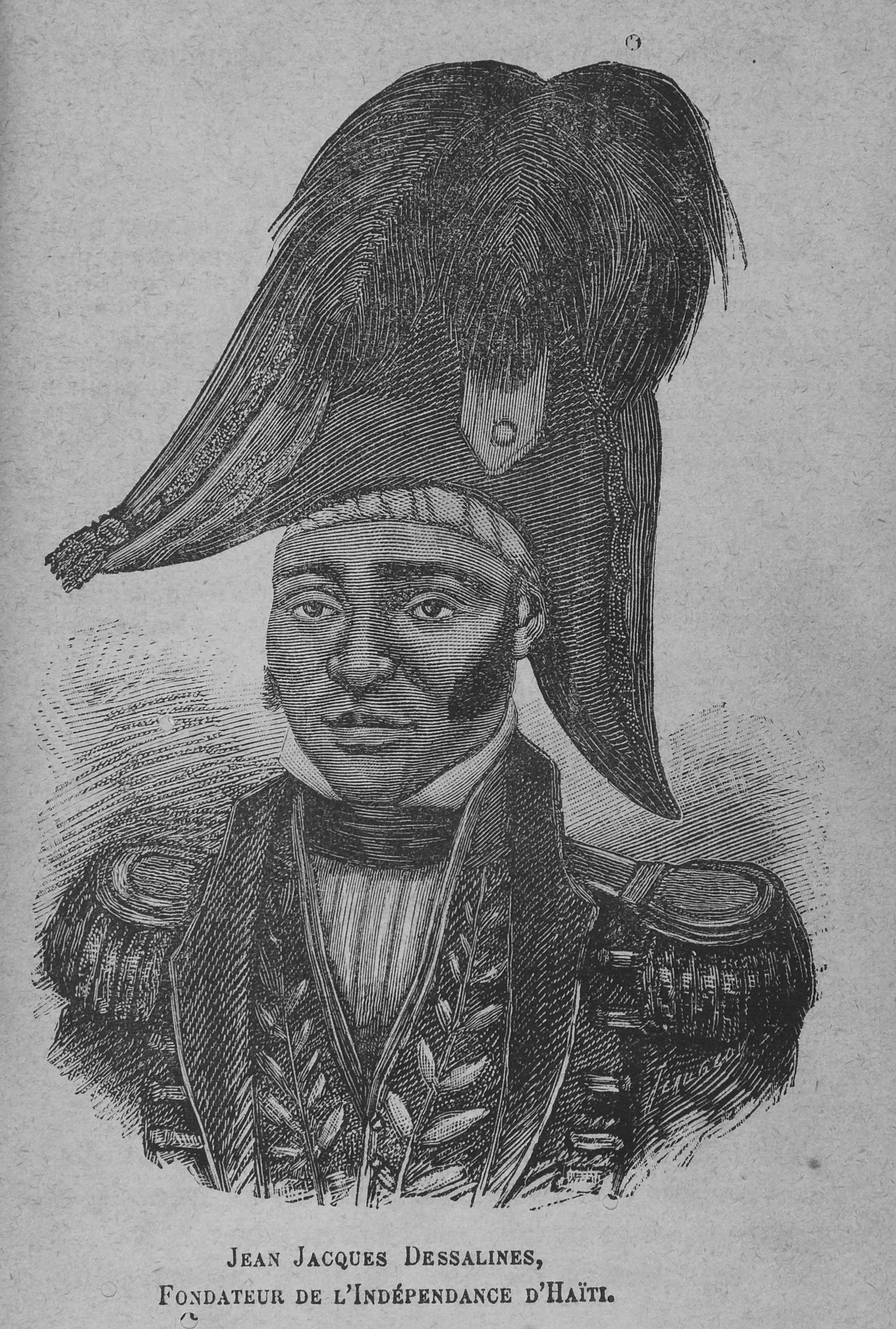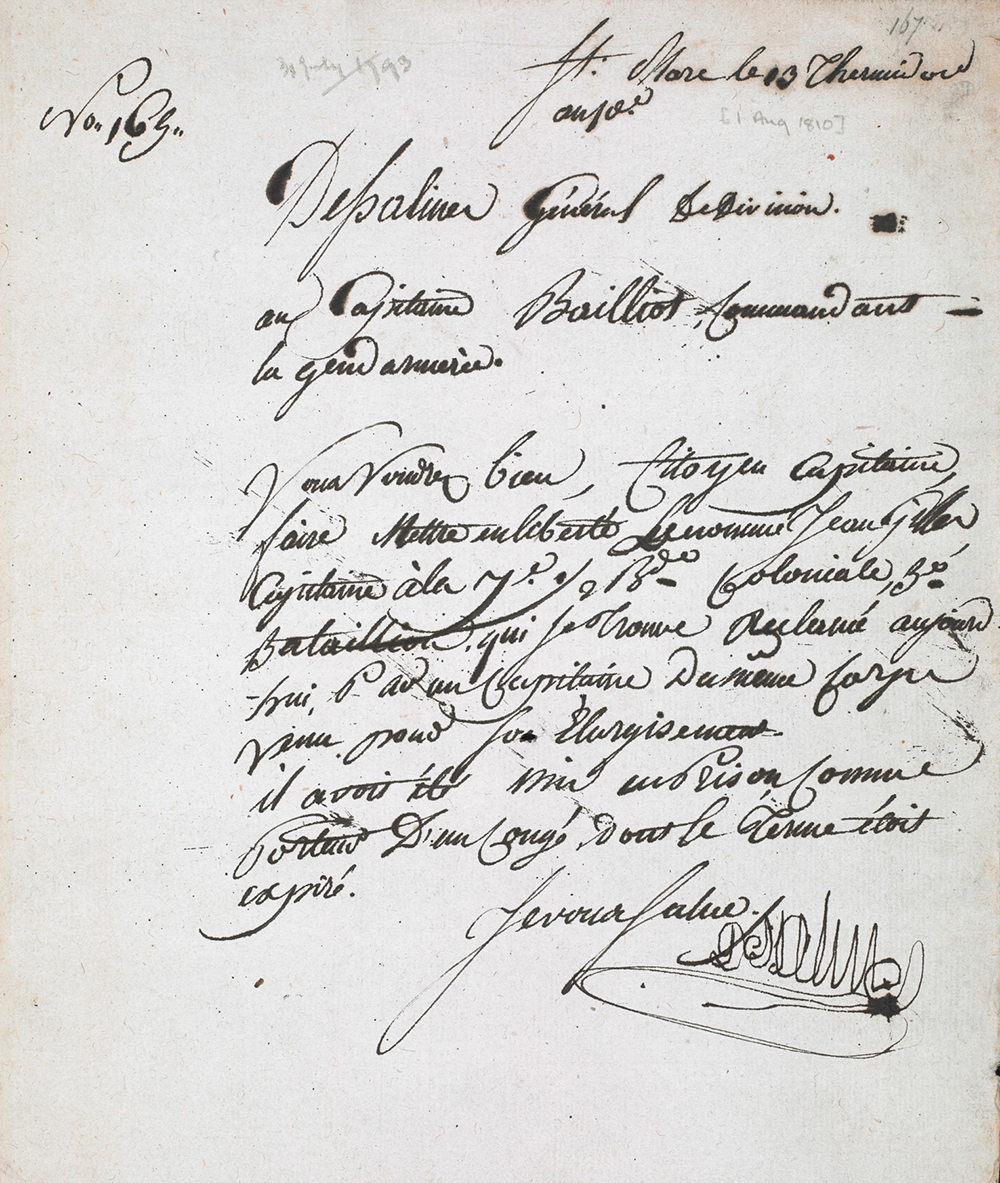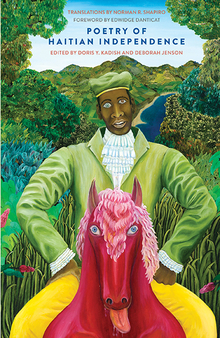
Jean Jacques Dessalines, by Dantès Fortunat, 1888. Schomburg Center for Research in Black Culture, Jean Blackwell Hutson Research and Reference Division.
As people continue to gather across the world to protest police brutality and anti-Black racism, Roundtable will feature voices from the past who rose up against injustice and told stories or witnessed moments that rhyme with the ones unfolding before us.
On January 1, 1804, Haiti, led by Jean-Jacques Dessalines, declared independence from France, formalizing the rupture with its Declaration of Independence. The moment marked the second time an American colony had declared independence, in the only successful slave revolt in history. “We have dared to be free,” the document says, “let us be thus by ourselves and for ourselves.”
Let us imitate the grown child: his own weight breaks the boundary that has become an obstacle to him. What people fought for us? What people wanted to gather the fruits of our labor? And what dishonorable absurdity to conquer in order to be enslaved. Enslaved?...Let us leave this description for the French; they have conquered but are no longer free. Let us walk down another path; let us imitate those people who, extending their concern into the future, and dreading to leave an example of cowardice for posterity, preferred to be exterminated rather than lose their place as one of the world’s free peoples.
Around that same time, a song was sung on the battlefields reasserting that freedom. “In this song,” librarian and archivist Patrick Tardieu wrote in an essay in The Haitian Declaration of Independence: Creation, Context, and Legacy, “Jean-Jacques Dessalines is portrayed as being the father of the new nation; the people are his children. The creation of a singular family symbolically united a diverse population. The use of indigène (indigenous) and the label ‘hero’ for Dessalines give legitimacy to the national project; the land was rightfully and their cause was justified. What is most interesting about this song, however, is the use of the term droits (rights). Rights are not discussed at all in the Haitian Declaration of Independence. The use of ‘rights’ in this song, however, is subsumed within a hierarchical family structure, and the people are indebted to Dessalines for the privilege of having these rights.”
The “Hymne haytienne” appears below in a translation by Norman R. Shapiro that was published in Poetry of Haitian Independence, edited by Doris Y. Kadish and Deborah Jenson. “The hymn is credited to an anonymous hand,” novelist Edwidge Danticat writes in the book’s foreword, “as though it were, like the country’s independence, collectively rather than individually achieved. Many of the poems that follow are in the same vein, showing the urgent and critical need for ordinary men, women, and children to see their own lives reflected in the successes of their predecessors. We hail emperors and kings, but with each laudatory verse we are also elevating ourselves.”

Haitian Hymn
What? Native race! Would you remain
Silent, unmoved, when Hero’s hand
Avenges you, breaks slavery’s chain,
Returns rights stolen from your land,
Returns rights stolen from your land?
Honor this soldier’s feats! Rejoice!
His be our hearts, widespread his fame.
Let incense rise to praise his name;
Let us sing with one manly voice:
“Good Father, he, who thus
Reigns wisely over us!
Live, die: ever his children, we,
Live, die: ever his children, we,
United, proud, and free!”
The murderous Frenchman’s treacheries
By New World perfidies outdone...
Our rights’ villainous enemies
Cast down the Children of the Sun,
Cast down the Children of the Sun.
Lo! Wondrous omens fire the Sky,
And Jacques appears; great warrior,
Lifting our heads! The hounds of war
Leave not a trace to shock the eye!
Good Father, he, who thus
Reigns wisely over us!
Live, die: ever his children, we,
Live, die: ever his children, we,
United, proud, and free!
Pray hear—over the sea, the plain,
The mountaintops—the anguished cries,
In the black throes of bale and bane,
Of those who, dying, agonize,
Of those who, dying, agonize.
For when you wash their bones, stripped white,
In the blood of the heartless horde,
The victims of their crimes untoward
Cry from the dark eternal night:
“Good Father, he, who thus
Reigns wisely over us!
Live, die: ever his children, we,
Live, die: ever his children, we,
United, proud, and free!”
What island denizen is there;
What coward soldier-wretch draws breath,
Who, warrior vile, is loath to bear
Our flag aloft, and shrinks from death,
Our flag aloft, and shrinks from death?
Let him speak! We need not the flame
Of Thunderbolt to cleanse his sin!
Our arms will smite him, do him in,
And crush to dust his thankless shame!
Good Father, he, who thus
Reigns wisely over us!
Live, die: ever his children, we,
Live, die: ever his children, we,
United, proud, and free!
Friends, let our thanks now sanctify
His valorous deeds—boons freely given;
With justice, honor, serving heaven,
Let us confirm his power thereby,
Let us confirm his power thereby.
Cradle-borne, may our children all
Stammer his name in babblings dim:
Blessèd Saint James, Patron of him
Who breaks the bonds of slavery’s thrall!
Good Father, he, who thus
Reigns wisely over us!
Live, die: ever his children, we,
Live, die: ever his children, we,
United, proud, and free!
Excerpted from Poetry of Haitian Independence, edited by Doris Y. Kadish and Deborah Jenson; translations by Norman R. Shapiro. Copyright © 2015 Yale University Press. Reprinted by permission of Yale University Press.
Read the other entries in this series: Anna Julia Cooper, James Weldon Johnson, Claude McKay, and Walter F. White.
